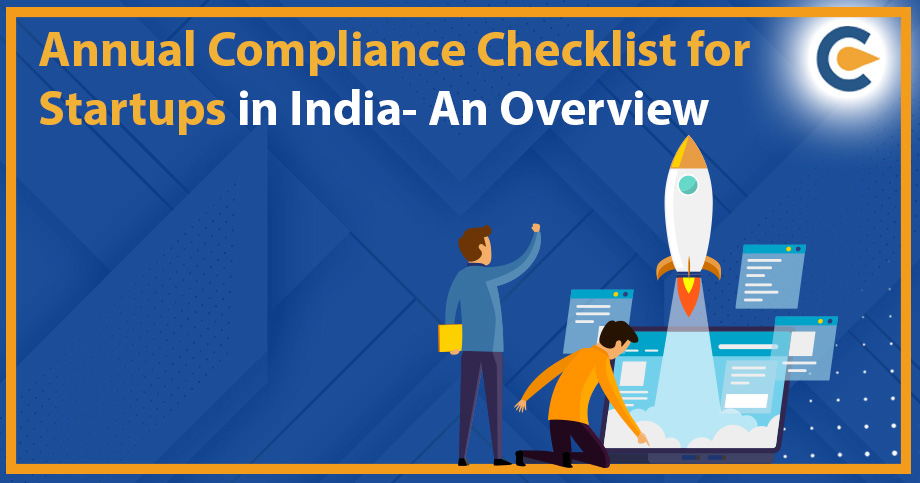Annual compliances for LLPs are essential to making sure the business runs effectively and complies with regulatory standards. An LLP is a type of business organisation that offers partners the protection of restricted liability at a minimal cost of compliance. Also, this structure enables partners to create their own internal structure. It is significant to remember that an LLP is accountable for all of its assets, but that the partners’ liability is constrained. This company’s corporate form differs from a limited liability company in that it combines a company and a partnership. Scroll down to check mandatory Annual Compliances for LLP.
What is LLP Annual Compliance?
A Limited Liability Partnership, or LLP, is a type of legal entity that combines the strengths of a corporation and a partnership company. Under this kind of partnership, the partners have limited liabilities, which means they are not obligated to use their personal assets to settle the business’s obligations and are also not held individually liable for the wrongdoing or negligence of the other partners. According to the 2008 Limited Liability Partnership Act, an LLP must be registered.
Advantages of Annual Compliances for LLP
Following the pertinent regulatory requirements of the company will result in the following advantages:
Reputation
The LLP and partners will improve their public image by adhering to the rules set forth by the Ministry of Corporate Affairs and the Registrar of Companies. An LLP might raise its compliance requirements through this method. If an LLP conforms to the law, more investors would be prepared to invest in it.
Compliance
The LLP would be exempt from all compliance obligations if all compliances were filed within a specific time frame. This will allow an LLP to achieve its goals.
Reduced Burdens
The LLPs would experience less burden when it comes to compliance requirements if they complied with the authorities’ regulations. Compliances must be followed up on and filed by the LLP, failing to do so may harm its growth. Therefore, it is essential that the LLP’s partners adhere to all compliance-related obligations.
Foreign Direct Investment (FDI) in LLPs
The Indian government recently released guidelines. A foreign firm may invest directly or indirectly in the shares or capital structure of an Indian entity through a process known as foreign direct investment.
Foreign investors are more likely to invest in LLPs if they adhere to the regulations set forth by the authorities. Both the automatic method and the approved route are available for FDI investment in LLPs. The LLP can enhance its capital through such an investment.
Therefore, it is appropriate for LLPs to take into account all of the requirements for annual compliances for LLP.
Mandatory Annual Compliances for LLP
Following are the mandatory annual compliances for LLP:
A. Solvency Filing and Statement of Account
- According to the LLP’s instructions, complete the form. Form 8 All LLPs are required to maintain double-entry accounting records. A summary of income and expenses, an account of the LLP’s assets and liabilities, and a certification of the LLP’s financial health by its authorised partners are all included in Form 8.
- The partners must fill out Form 8 and have it confirmed by an active chartered accountant, company secretary, or cost accountant.
- This must be turned in no later than 30 days following the end of the six-month window following the fiscal year’s end, or by October 30th each year.
- An LLP having a turnover of more than Rs. 40 lakh or a contribution of more than Rs. 25 lakh must have the books audited by an active chartered accountant.
B. Yearly Returns Must Be Filed
- The return must be submitted to the Registrar of Companies.
- Use the pre-established format of the LLP Form 11.
- This must be submitted no later than May 30 of each year, or 60 days after the end of the fiscal year.
C. Tax Return Submission
- Filing a Tax Return Form ITR 5 is necessary for LLPs when filing their income tax return; it can be downloaded or submitted electronically with the digital signatures of the designated partners.
- All LLPs must finish their fiscal years by March 31 and submit the related returns to the IT Department in accordance with the Income Tax Act.
- If an LLP’s annual turnover reaches Rs. 60 lakh, they are required to have their books audited and file their returns by the latest date of September 30 each year.
- LLPs that do not require an audit of their financial statements shall submit their returns yearly no later than July 31.
D. MCA and ROC Compliance
- The requirements of the LLP agreement require that partners make equal investments. Such provisions are found in the Limited Liability Partnership Act of 2008[1]. Each Partner shall make an equal contribution.
- LLPs must also keep their books of accounts up to date and compliant with ROC and MCA laws.
- Compliance to the terms of the 2008 Limited Liability Partnership Act
Penalty Provisions
MCA Filings
According to the Limited Liability Partnership Act, every registered LLP must file Forms 8 and 11 in 2008 as a condition of registration. A penalty is imposed for failure to comply with the LLP annual compliance. For each day the form is not filed, there is a $100 fine. There is no cap on the amount of the punishment.
Income Tax Filings
For income tax filings, there are two levels of penalties for failing to submit tax returns on time. Those who miss the deadline but file their forms before December 31st of each year must pay Rs. 5000 in default penalties. If LLPs miss the extended deadline, they must pay Rs. 10,000.
Post Incorporation Compliances for LLP
There are additional one-time compliances in addition to the LLP annual compliance. The following requirements must be met by an LLP once it has been registered:
- According to Sections 2(O) & (q), 22 and 23 of the LLP Act, 2008, the LLP must sign and file the LLP Agreement with the Ministry of Corporate Affairs within 30 days of its establishment. The rights and obligations of the partners and the LLP are frequently mentioned in the Agreement.
- According to the LLP Act, reciprocal rights and obligations must follow Schedule I to the Act if no agreement is filed. Therefore, an LLP must negotiate and submit an LLP Agreement specifically excluding the applicability of any or all sections of Schedule I if it chooses to exclude the terms or obligations of Schedule I to the Act.
Penalty: Failure to submit the Agreement by the deadline will result in a fine of Rs. 100 each day of noncompliance, with no maximum fine.
In addition to the aforementioned, the LLP must apply for an LLP PAN and TAN, open a bank account, buy an LLP seal, and have stationery made after formation.
Compliance Calendar for LLP
Post-incorporation obligations are duties that LLPs must carry out after becoming incorporated. Annual returns, financial statements, changes to partners or designated partners, adjustments to contributions, and changes to the registered office are among them. All LLPs must keep yearly accounts that accurately and fairly depict their financial situation. Even if LLP does not conduct any business, it is nevertheless required to provide annual documents including the Annual Report, Balance Sheet, Profit and Loss Account, and Income Tax Return in accordance with the law. The LLP’s capital contribution will determine the statutory fees.
LLP’s Financial Year
Every company is required to have a standard financial year-end on March 31. However, if a limited liability partnership (LLP) is formed after September 30 of a given year, the financial year may end on March 31 of the year that follows that year.
Regular Works of LLP
- Annual e-Forms
| Agenda | Particulars | e-forms | Due Date |
| Statement Of Account & Solvency | Every LLP must submit an annual “Statement of Accounts and Solvency” in the prescribed form to the Registrar. sub-section (3) of section 34 | LLP-8 | 30th October |
| Annual Return | Each LLP must submit an annual return on Form 11 to the ROC within 60 days of the financial year’s end. | LLP-11 | 30th May |
More about Form- 8 and 11
Let’s discuss the meaning of Form-8 and 11:
- Form – 8
Every one of the LLP’s chosen partners must certify in writing that they can pay the company’s debts in full when they fall due during normal business operations. Every limited liability partnership must submit the Statement of Account and Solvency in Form 8 to the Registrar within thirty days of the end of the financial year to which the Statement of Account and Solvency pertains in order to comply with section 34’s subparagraph (3). Declaration of Solvency, Form 8 Part A, Contents Statement of Account, Income & Spending Statement, Part-B Two Designated Partners must sign Form-8, and CS, CA, and CWA must certify it (in Whole Time Practice).
- Form 11
Form LLP-11 is an annual return that includes information about the number of partners, the total contribution received by all partners, the partners’ specifics, the specifics of body corporations that are partners, and a summary of the partners. Each LLP must submit an annual return on Form 11 to the ROC within 60 days of the financial year’s end.
Every year on May 30, the LLP-11 must be completed.
If LLP fails to submit Form 11 within the required timeframe, the designated partners may be subject to a fine of up to 500,000 rupees, but it must not be less than Rs. 25,000.
It has been stated that no legal action will be taken against LLPs who file pertinent documents after their due dates and with additional fees up to 300 days. If there is a delay of 300 days or longer, the LLPs must pay the regular filing fees, an extra fee, and they risk prosecution or a condonation under Section 460 of the 2013 Companies Act.
The Act also includes provisions for combining offences that simply carry a fine as punishment.
Requirement of Audit of Account under LLP Act- 2008 (Rule 24) Of LLP Rules 2009
- Audit Required: If turnover exceeds 40 lakhs or contribution exceeds 25 lakhs.
- Audit Not Required: If turnover does not exceed 40 lakhs or contributions does not exceed 25 lakhs.
When the LLP’s partners decide against having the LLP’s accounts audited, the LLP must include in the Statement of Account and Solvency a statement from the partners stating that they accept responsibility for adhering to the Act’s and Rules’ requirements for the preparation of books of account, as well as a certificate in the format required by Form 8.
Conclusion
The benefit of annual compliances for LLPs stems from how simple it is to start and run them. Due to the LLP’s independence from its partners, the registration process costs less than it would for a company. To keep receiving these advantages, it is necessary to make sure that annual compliances for LLP are met. To assist in satisfying these compliance standards, Corpbiz can offer legal counsel and information.
Also Read:
Is It Easy To Maintain Annual Compliance For LLP? Let Us Know In Detail!











